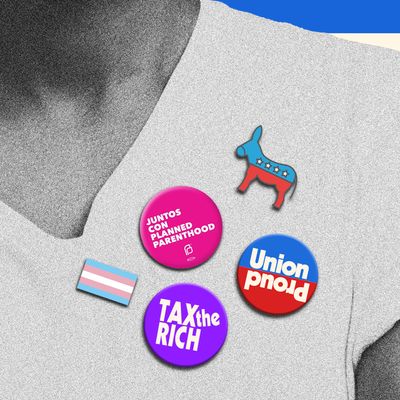
Fundamentals such as the president’s popularity, the condition of the economy, and turnout dynamics will have a bigger impact on the midterm elections than anything individual candidates say or do. But at the margins, campaigns really do matter, and major parties may benefit from their candidates reinforcing one another with the same messages. It’s with that in mind that legendary pollster Stan Greenberg took to the pages of The American Prospect with some empirically grounded advice for Democrats battling to survive what has long been expected to be an adverse election cycle for the party.
Like many Democratic analysts, Greenberg believes the midterm landscape has significantly improved in recent weeks, mostly because of a powerful reaction in key voting groups to the Supreme Court and Republican assault on abortion rights along with a renewed fear of gun violence. He also hopes recent Democratic legislative accomplishments might help if explained properly. But above all, Greenberg believes Democrats have to fully understand how angry voters are and avoid doing anything that smacks of self-satisfaction. Democrats, he writes,
should embrace the reconciliation bill when it passes, as Democrats helping poor, working, and middle-class families and fighting the big corporations, billionaires, and their lobbyists — and not as Democrats being rewarded for doing a good job or keeping their promises. This election, as always, has to be about the ordinary citizen, not the politicians.
And Democrats cannot be the custodians of the status quo. This insight informs Greenberg’s advice to candidates about the all-important inflation issue. Instead of boasting about signs of progress or discussing macroeconomic statistics, Democrats should recognize that the living standards of wage earners have been deteriorating for years and focus on those who are grinding them down by both holding down wages and boosting prices: rich and powerful corporations.
Democratic candidates need to join their own battle against big corporations. Their high prices and profits are enriching CEOs and shareholders, and their influence has kept their taxes low. Democrats can say “Enough!” and work to stop price-gouging, raise taxes on billionaires and corporations, and fight unlimited campaign spending. … Saying that “corporations are … using the cover of inflation to increase their profits” because “they face little competition,” and explaining how Democrats are working to stop that … lifts Democrats. …
One can hardly find a more popular idea than taxing billionaires. Fully 63 percent of voters are warm to it, triple the number against it. It gets a positive response from over 40 percent of Trump loyalists, 50 percent of moderates, and 60 percent of Republican defectors.
While Greenberg believes the right messages on the cost of living and on abortion rights can boost Democratic prospects in November, he has a grave warning about crime and immigration: These are issues Democrats aren’t trusted on even by key elements of their base.
Crime is a top-tier issue for Hispanics, Asian Americans (AAPI), Gen Z, and millennials; and for Blacks it is at parity with the cost of living. Democrats lose Asian Americans by 9 points on who is better on crime. And the biggest worry in the survey, if Democrats were to win control of the Congress, would be a surge of crime and homelessness and attacks on police. Major parts of the Democratic base accept Trump’s dire warning that America has never been more at risk from crime, open borders, disrespect for police, and a lack of pride in America.
These concerns could clearly affect voting preferences in November:
I asked voters to choose between a Democratic message, with its hugely popular policies, and a Republican message, embodying Trump’s words on making America great again, that led with crime and borders and ended with the police.
A stunning 28 percent of Blacks chose the America First message. But more alarming, 45 percent of AAPI voters and 47 percent of Hispanics did too.
Some observers have scoffed at Donald Trump’s highly redundant current message as just regurgitated “American carnage” rhetoric from 2016. But it may be working better now than it did then. And worse yet, Democrats have yet to devise a counter-message as effective as Republicans’ smears about “defunding the police” and “welcoming an invasion of our borders.” The situation is so bad that Greenberg thinks Democrats should just change the subject until they’ve devised a better response:
I fought for years against political consultants and candidates who argued that talking about crime or welfare puts you on the terrain of the opponent. But in this case, what Democrats are proposing is just not reassuring. I am suggesting — for now — not joining the debate.
In other words, silence isn’t golden, but in the words often attributed to Abraham Lincoln, “Better to remain silent and be thought a fool than to speak out and remove all doubt.”
So according to this highly credible observer, the challenges facing Democrats aren’t limited to 2022 and won’t necessarily improve after the midterms even if Trump becomes the all but certain 2024 presidential nominee. As long as the public remains in its current sour mood, Democrats have to look like they are hearing voter concerns and willing to act on them in ways that make corporations, gun merchants, and right-wing religious fanatics the problem, not just the wrong party holding power in Washington.
More From This Series
- J.D. Vance Explains His Conversion to MAGA
- Are Democrats the Party of Low-Turnout Elections Now?
- New Midterms Data Reveals Good News for Democrats in 2024






























